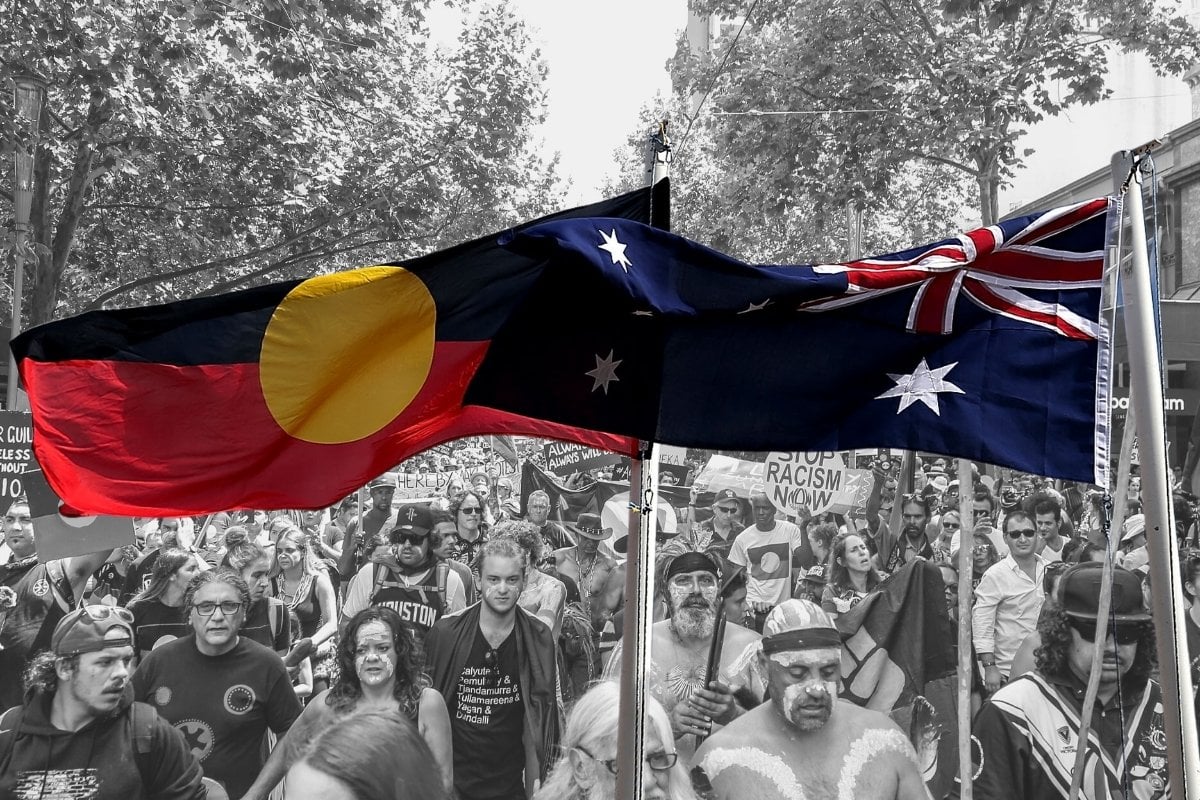
Every year in Australia, once the New Year festivities are behind us, the same debate mounts in the press, on social media, and around dinner tables.
Should our national day be held on January 26, the day the Union Jack was raised at Port Jackson on the land of the Eora clans?
To some, January 26 is a modern tradition worth protecting, a celebration of what Australia looks like today. It feels like a moment to pause and acknowledge what we have.
To others, it can never be detached from the past, from an event that started the systematic oppression of an ancient culture. It feels, as Woolwonga/Gurindji woman Susan Moylan-Coombs says, "like pressing on a bruise".
Watch: What January 26 means to different Australians. Post continues below.
If you are among those who see changing the date of our national day as one way to help heal that bruise, here's a guide to common arguments against it and how to address them.
'We deserve to celebrate Australia and being Australian.'
Abso-bloody-lutely! We've got so much to celebrate as a country.
But by having that celebration on January 26, we're tying it to British settlement and positioning that invasion (in Reconciliation Australia's words) as "the primary source of Australian identity and pride."
There's more to us than that, more that deserves to be celebrated.
That includes the communities that thrived on and cared for the land for 65,000 years before Captain Arthur Phillip planted a flag in it.
